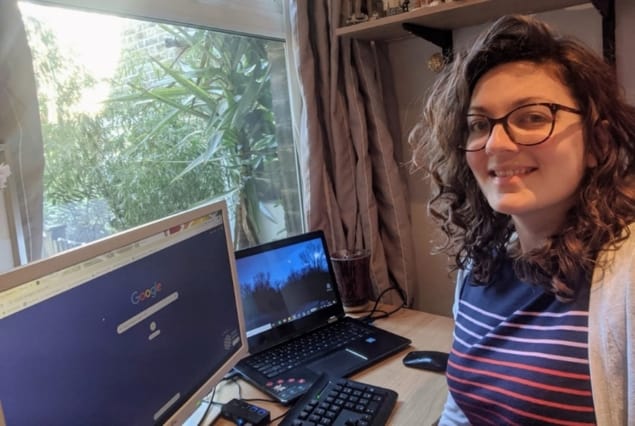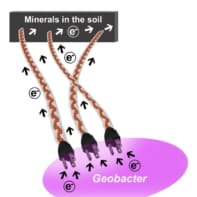Lucy Rowlands is a PhD student in biophysics at Imperial College London, UK.
This post is part of a series on how the COVID-19 pandemic is affecting the personal and professional lives of physicists around the world. If you’d like to share your own perspective, please contact us at pwld@ioppublishing.org.

The shutting down of my department was a surprisingly difficult day. The Imperial College chemistry department made the decision to shut on 16 March, when the first social distancing measures in the UK were announced, and I was not prepared for the emotional toll it would take on me. I’m in the last year of my PhD and was preparing to focus on a difficult year of work. Instead, I found myself putting away all my experiments and taping shut our freezers.
We’d all talking about it; we even had an informal bet on when the college would finally shut. Everyone had been on edge for a couple of weeks, and no-one could talk of anything else. I’m grateful that we shut down in the end though. Social distancing in London is very difficult and, as anyone who has been on the tube will know, sometimes it’s just impossible.
So now I’m at home writing my thesis. I have my desk set up by my window and a routine established. At least that’s what I’m supposed to be doing. My brain hasn’t quite worked out a way to stop worrying enough to work properly. I’m trying to be kind to myself; scientists don’t live in a vacuum and the state of the world will affect our work. Trying to adjust to the massive changes we’ve all experienced in the past month is no small task.
As an experimental scientist, all my work is lab based. Like many around the world, I’m faced with the uncertainty of not knowing when I’ll be able to get my next results. I have an ever-expanding list of experiments that I want to do when I can return to the lab. In the meantime, like many other scientists, I’m going to try to learn all these computational and programming techniques that have been passing me by for years. Prepare for some very mediocre modelling!

Physics in the pandemic: ‘I learned that my students miss the structure and support that the university provides’
Whilst I was trying to settle into the new rhythm, one of my flatmates developed symptoms. Which means that now we’re self-isolating as well. This has added an extra layer of worry, as I’m constantly concerned about her health and waiting to see if I get it. Hearing her coughing from my room, I’m continuously reminded how serious this crisis is.
One of the positives I’ve managed to find though, is that my research group has banded together. Everyone has been checking in on each other and putting online coffee sessions and Friday drinks in the calendar. We had our first virtual group meeting and I was struck by how much it started to make me feel normal again. Through all of this I’ve been overwhelmed by the amount that people are reaching out and making connections. It’s these interactions that are becoming my inspiration, lifting my spirits enough to be able to put pen to paper.



